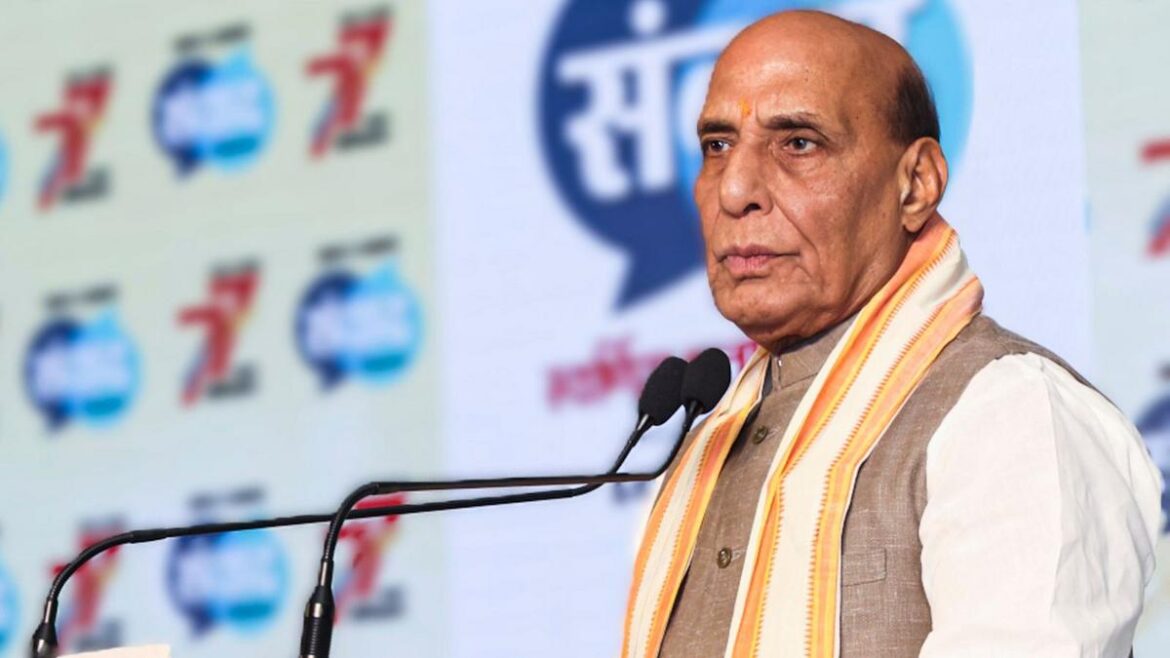India Sends High-Level Delegation to Qingdao for SCO Defence Ministers’ Meeting
Defence Minister Rajnath Singh will represent India at the upcoming Shanghai Cooperation Organisation (SCO) Defence Ministers’ Meeting, set to take place in Qingdao, China on June 25 and 26. The visit carries weight, both diplomatically and geopolitically, as Singh is slated to hold bilateral talks with his Chinese and Russian counterparts during the meet.
This marks Singh’s second interaction with Chinese Defence Minister Admiral Dong Jun since October 2024, when both countries agreed on troop disengagement in parts of eastern Ladakh—an area strained by a prolonged military standoff that began in 2020.
What Happened in Eastern Ladakh
India and China have been embroiled in a tense standoff along the Line of Actual Control (LAC) since mid-2020. Numerous rounds of military and diplomatic discussions have sought to ease the situation, gradually resulting in disengagement at friction points. Sources suggest that Singh’s talks with Dong Jun will touch on updates in the disengagement process and unresolved border areas.
While both sides officially confirmed progress, trust between the two Asian powers remains fragile. An Indian defence official said: “These meetings provide a channel for clear communication. But it’s not just about resolving existing issues — it’s about ensuring no future flare-ups.”
Military Dialogue History
Singh has previously met Chinese Defence Ministers thrice:
- September 2020 — Moscow, on the sidelines of an earlier SCO gathering
- April 2023 — New Delhi, during another SCO Defence Ministers’ Meeting
- November 2024 — Vientiane, Laos, during the 11th ASEAN Defence Ministers’ Meeting-Plus
Each of these meetings had one theme in common: border security. But solving the LAC issue remains a challenge. Perhaps this June meeting will offer a sharper direction — that’s the hope.
Talks with Russia: Defence Ties in Focus
Sources say Singh is also expected to meet Russian Defence Minister Andrey Belousov in Qingdao. With Russia still engaged in the Ukraine conflict since 2022, defence cooperation between Moscow and New Delhi carries multiple layers.
India relies on Russian platforms — from tanks to fighter aircraft — for key military capabilities. Interactions like these usually revolve around ongoing support, spare parts, and system upgrades.
In December 2024, Singh and Belousov co-chaired the 21st India-Russia Inter-Governmental Commission on Military and Military Technical Cooperation. That conversation focused on procurement timelines and joint production ventures, mostly behind closed doors.
Yet, Singh didn’t attend Russia’s Victory Day celebrations last month, a move tied to India’s Operation Sindoor launched in May against terror targets in Pakistan. The cancellation raised a few eyebrows in Moscow, but Indian officials underplayed it, citing unavoidable urgency back home.
SCO Defence Ministers Meeting: What’s on the Agenda?
The Defence Ministry confirmed that the main topics on table at the SCO meeting include:
- Regional and international peace and security
- Counter-terrorism cooperation among member states
- Trade and connectivity in the Eurasian region
“India is committed to the SCO principles and will call for joint efforts to eliminate terrorism and violent extremism,” the ministry said in a statement ahead of the Qingdao visit. Singh is expected to emphasize India’s view on multilateral cooperation and press on stronger economic and people-centric connections within the SCO umbrella.
The group consists of China, India, Russia, Pakistan, Iran, Kazakhstan, Kyrgyzstan, Tajikistan, Uzbekistan, and Belarus. China currently holds the rotating SCO Chair for 2025 under the theme ‘Upholding the Shanghai Spirit: SCO on the Move’.
India’s Role Within SCO
India assumed full SCO membership in 2017 and held its rotating chair in 2023. While the platform allows regular interaction with competing regional powers like China and Pakistan, New Delhi uses the opportunity to raise its concerns and perspectives in a multilateral format.
Despite clear differences between some member nations, the SCO remains a key regional dialogue forum. Whether Singh’s presence in Qingdao brings real movement on military disengagement or practical defence cooperation with Russia is uncertain. But at least, direct conversations are happening.
Eye on Terror and Security
India’s focus this year has shifted back to counter-terrorism — an issue that may come up with full force following Operation Sindoor. Singh’s statement is expected to reflect India’s zero-tolerance stance and urge member states to reject safe havens for terror groups.
“Terrorism doesn’t just destabilize borders — it poisons development,” a senior defence source said, who asked not to be named. He added that India would reinforce its call for all SCO members to observe similar standards of accountability, especially those bordering sensitive regions.
China-India-Russia: A Delicate Triangle
These trilateral ties are complex. China maintains close coordination with Russia but remains India’s strategic competitor. Yet Singh talking to both sides, back-to-back, underlines India’s nuanced approach. Perhaps an effort to keep lines open without losing ground — literally, or politically.
Still, trust gaps linger. Long-term disengagement at the LAC remains incomplete. On defence trade, India leans on Russia, but also diversifies by deepening US and Israeli partnerships. It’s a balancing act, and Qingdao offers one more stage for it.
Looking Ahead
Whether Singh’s visit alters ground realities or shifts diplomatic tone remains to be seen. But given the stakes, even maintaining dialogue is a signal — perhaps not of breakthrough, but at least of intent.
The SCO defence ministers gathering in Qingdao, while symbolic, could be a checkpoint for recalibrating regional priorities. For India, presence here means staying engaged, prepared, and visible in a region filled with shifting ambitions.

